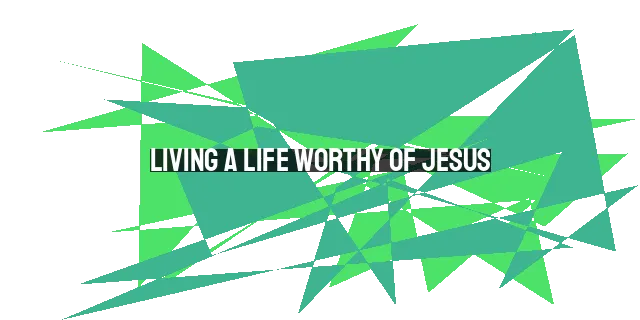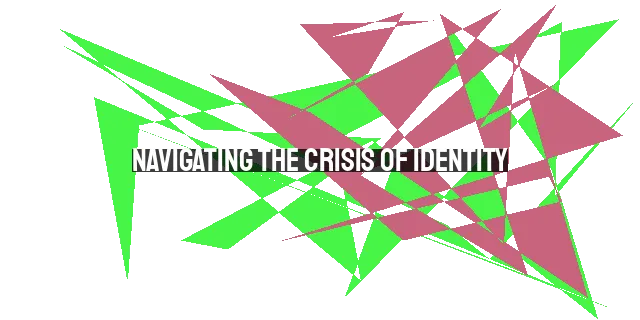Christian Hub
1 year ago
Responding to God's Goodness: A Grateful Heart and Trusting Spirit
What can I give to the Lord in return for all the good things he has done for me? This question, posed in Psalm 116:12, reflects a desire to show gratitude and appreciation to God for his countless blessings. However, it is important to approach this question with the understanding that we cannot repay God for his goodness. Grace, by its very nature, is not something that can be earned or paid back. It is a free gift from God.
In Acts 17:25, the apostle Paul reminds us that God is not served by human hands, as if he needed anything. God is the source of all life and breath and everything we have. We cannot give anything to God that he has not already given to us. Our actions and deeds are not a means of paying back God, but rather a response to his grace and a way of magnifying his ongoing goodness in our lives.
This concept is further explained in 1 Corinthians 15:10, where Paul says, "But by the grace of God I am what I am, and his grace to me was not without effect. No, I worked harder than all of them—yet not I, but the grace of God that was with me." Even our own efforts and hard work are ultimately gifts from God. We are indebted to his grace in every aspect of our lives.
So, how then can we respond to God's blessings and show our gratitude? The psalmist in Psalm 116 provides us with an answer. He says, "I will lift up the cup of salvation and call on the name of the Lord. I will fulfill my vows to the Lord." These actions are not meant to be repayment to God, but rather acts of receiving and magnifying his grace.
Lifting up the cup of salvation signifies taking hold of God's saving grace and continuously drinking from it. It is an acknowledgment that we are always in need of God's salvation and that he is the one who satisfies our deepest desires. By calling on the name of the Lord, we are expressing our dependence on him and our trust in his provision. We are continually seeking his help and guidance in our lives.
The psalmist also mentions fulfilling vows to the Lord. However, these vows are not a form of payment to God. Instead, they are a way of expressing our faith and trust in his promises. We fulfill our vows by holding up the cup of salvation and calling on the Lord. Our payment to God is not in the form of material offerings or sacrifices, but rather in our unwavering belief that his grace is always sufficient and that more grace is on the way.
In this way, our response to God's goodness becomes a continuous cycle of receiving and giving. We receive his grace and blessings, and in turn, we offer our praise and thanksgiving. But even our praise and thanksgiving are gifts from God. We can never out-give or out-pay his grace.
As we reflect on the question of what we can give to the Lord in return for his benefits, let us remember that our response should not be one of trying to repay a debt, but rather one of humble gratitude and trust. We cannot repay God for his goodness, but we can continually receive and magnify his grace in our lives. Let us lift up the cup of salvation and call on the name of the Lord, knowing that he is always faithful to provide and that his grace is without end.
In conclusion, the question of what we can give to the Lord for his benefits is not one of repayment, but one of response. We cannot repay God for his grace, but we can continually receive and magnify his goodness in our lives. Let us hold up the cup of salvation, call on the name of the Lord, and fulfill our vows by trusting in his promises. May our lives be a testament to his abundant grace and may we never cease to be grateful for all that he has done for us.
In Acts 17:25, the apostle Paul reminds us that God is not served by human hands, as if he needed anything. God is the source of all life and breath and everything we have. We cannot give anything to God that he has not already given to us. Our actions and deeds are not a means of paying back God, but rather a response to his grace and a way of magnifying his ongoing goodness in our lives.
This concept is further explained in 1 Corinthians 15:10, where Paul says, "But by the grace of God I am what I am, and his grace to me was not without effect. No, I worked harder than all of them—yet not I, but the grace of God that was with me." Even our own efforts and hard work are ultimately gifts from God. We are indebted to his grace in every aspect of our lives.
So, how then can we respond to God's blessings and show our gratitude? The psalmist in Psalm 116 provides us with an answer. He says, "I will lift up the cup of salvation and call on the name of the Lord. I will fulfill my vows to the Lord." These actions are not meant to be repayment to God, but rather acts of receiving and magnifying his grace.
Lifting up the cup of salvation signifies taking hold of God's saving grace and continuously drinking from it. It is an acknowledgment that we are always in need of God's salvation and that he is the one who satisfies our deepest desires. By calling on the name of the Lord, we are expressing our dependence on him and our trust in his provision. We are continually seeking his help and guidance in our lives.
The psalmist also mentions fulfilling vows to the Lord. However, these vows are not a form of payment to God. Instead, they are a way of expressing our faith and trust in his promises. We fulfill our vows by holding up the cup of salvation and calling on the Lord. Our payment to God is not in the form of material offerings or sacrifices, but rather in our unwavering belief that his grace is always sufficient and that more grace is on the way.
In this way, our response to God's goodness becomes a continuous cycle of receiving and giving. We receive his grace and blessings, and in turn, we offer our praise and thanksgiving. But even our praise and thanksgiving are gifts from God. We can never out-give or out-pay his grace.
As we reflect on the question of what we can give to the Lord in return for his benefits, let us remember that our response should not be one of trying to repay a debt, but rather one of humble gratitude and trust. We cannot repay God for his goodness, but we can continually receive and magnify his grace in our lives. Let us lift up the cup of salvation and call on the name of the Lord, knowing that he is always faithful to provide and that his grace is without end.
In conclusion, the question of what we can give to the Lord for his benefits is not one of repayment, but one of response. We cannot repay God for his grace, but we can continually receive and magnify his goodness in our lives. Let us hold up the cup of salvation, call on the name of the Lord, and fulfill our vows by trusting in his promises. May our lives be a testament to his abundant grace and may we never cease to be grateful for all that he has done for us.



POST COMMENT
For post a new comment. You need to login first. Login
COMMENTS(0)
No Comment yet. Be the first :)